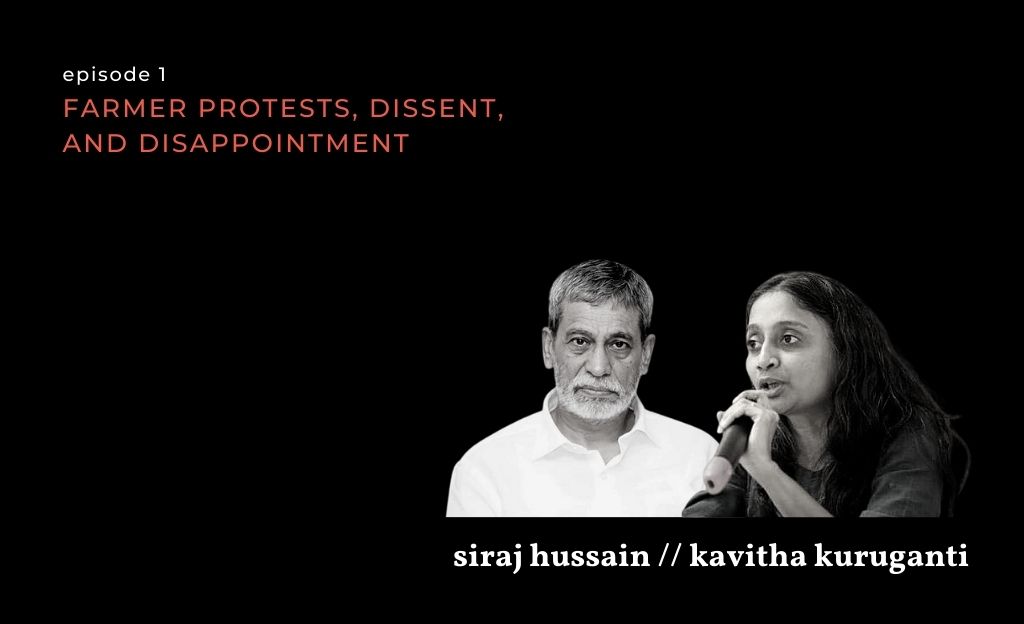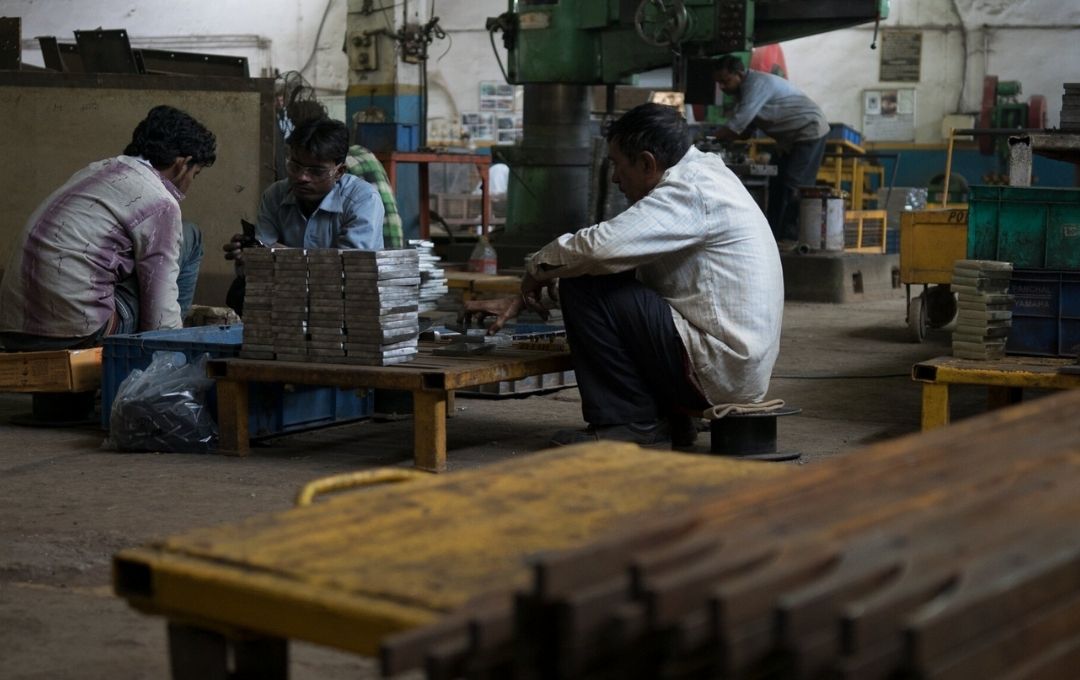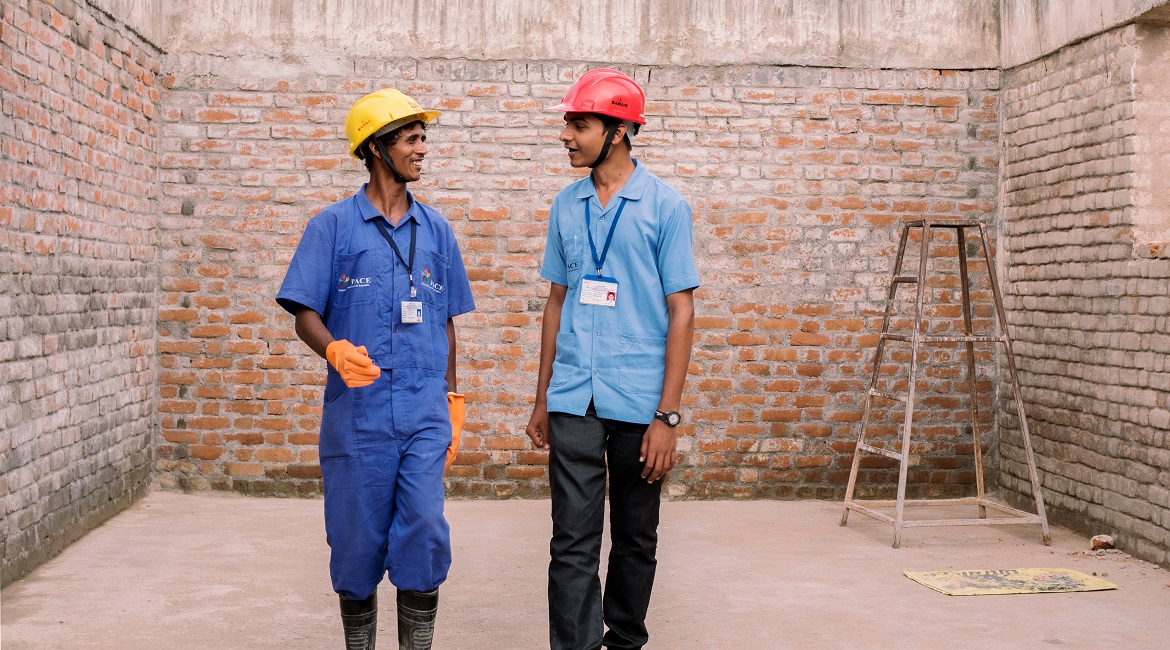Manish Sabharwal is Founder and Chairperson of Team Lease Services, a pioneering company in India for connecting job-seekers with job-providers. He is also involved with economic policy formulations in the country, and sits on the board of the Reserve Bank of India. Renana Jhabvala is an economist, and one of India’s leaders in the building of small enterprises, especially women’s enterprises. She is a long-time leader of SEWA, (Self-Employed Women’s Association), the single largest Central Trade union registered, with a membership of more than 1.5 million poor, self-employed women workers from the informal economy across 18 states in India.
Edited excerpts from the episode:
Manish Sabharwal
“I don’t view informality as a disease to be eradicated. I just view informality, as for many people, it’s more involuntary. Just like running a small company, for some people is involuntary, for some people is voluntary. For some people migration is involuntary, for some people migration is voluntary. And I think we agree that if migration is involuntary, that is not good. But if migration is voluntary, who are we to say anything, right? My only case to you would be that I completely understand informality as a coping mechanism, and I’m grateful India has it. But there are many people in the informal sector; if you gave them the resources, removed their constraints, they might want to take a different path. And I believe that it is now possible in the next 10-15 years. We can do that.”
“The informal sector, in my mind, is a shock absorber. It’s been a wonderful shock absorber, but is it? Is it a natural state of things to have low productivity? See the challenge with the informal sector is that it doesn’t have access to credit, doesn’t have access to training. So it tends to have lower productivity than the formal sector. I don’t define formal as large and informal as small. I’m just saying that informal means, you know, you have productivity. Because finally, poverty is about productivity, right? Whether a country is poor or not is because your regions are not productive, your firms are not productive, and your individuals are not productive. So for me, I recognise the power of the informal sector, as something that has helped India cope. But I don’t think we should surrender. Or say that informality is a natural condition, it’s a desirable condition. I think we should try and understand why India is an outlier. The level of informality in India is much higher than other countries at our level of development, is my case. I think we shouldn’t make peace with the level that India is at right now. So rather than make peace with that, against a 45 percent labour force, which only generates 15 percent of GDP, I think that we need to move out 150 million people off farm, and into non-farm jobs, primarily because product productivity is higher in the non-farm sector; so they’re more likely to get a wage premium in the non-farm sector.”
Renana Jhabvala
“We know that there are a lot of workers who work, say in factories, but who are unprotected, who can be dismissed anytime and basically, are working through contracts in India. There are many other types of wage workers too. And for women, domestic work is a big issue. In the agriculture sector of course, you have the agriculture workers and the construction workers, all of whom are informal. And when we say informal wage workers, what we mean really, is that they have no types of protection.Tthey don’t have social security as workers, they don’t have any kind of work security. So, there is a real insecurity for these wage workers.
The other type of informal labour in India–this is 50 percent and is totally different–are the self employed. And most of the self employed are very, very small. The self employed enterprises are 90 percent of all enterprises, and they actually have less than five employees, or are small family units. So if you look at it, our economy is running on many of these wage workers who are unprotected, have no social security, and very low wages.”
“These small units, these tiny family enterprises, they face a lot of barriers and they’re not encouraged in any way by policy. So just to give you an example, recently, we had, or we still have, the COVID-19 crisis. And the government has announced many loans and some subsidies for medium-, small- and micro-enterprises. I can guarantee that none of these have been going to the self-employed. Why? Because our system is not set up to reach out to them. So the loans are going to registered enterprises; banks only look at registered enterprises. The banks only know one way to calculate whether this enterprise is doing well or not. And of course, the problem is many of them don’t have books of records. So there’s been no attempt at all by the system.
And so large systems like the government, and large banks would prefer the ‘small’ to be in a form which enables them, the ‘large’, to have an easier time dealing with them. So it’s all the big fellows trying to convert the small fellows into another form, for their own convenience, and not asking the ‘small’: What can the ‘big’ change in what they do, to make your life easier. So I find that the ease of doing business, which has become such a big thing; we ask the ‘big’ people: How can it be easier for you to do business? But we’re not asking the very ‘small’ about the ease of living or the ease of business for them. In many cases, especially for women, living and business is integrated. And yet we aren’t asking the question: how can we make living easy for you and your micro-business easy for you?”
Manish Sabharwal
“I think social security is really important to the modern state as a welfare state. But my case would be, that the Indian state doesn’t lack ambition. It lacks resources, you know. The central government budget is INR 29 lakh crores; states spend about INR 34 lakh crores and we run a fiscal deficit of 12 to 14 percent of GDP. So, I think we should have social security, but maybe this comes at different stages of development. And so, even in the pandemic people have criticised the Indian state to be stingy. But the US has run a fiscal deficit more than India’s GDP because they can. The US Federal Reserve has expanded its balance sheet by USD 3 trillion in the recent past, because they can. So I think social security nets are earned, they are not inherited. Social security is not a mindset, it’s actually writing a cheque. So, should we take it out of the INR 29 lakh crores that we have for the central government or INR 34 lakh crores per state? I wish we could. But anyway, 80 percent of that money is spoken for. My question is, yes, we should do it, but where do we get the money from?”
Renana Jhabvala
“You cannot totally depend on the government or on the employers to actually provide social security. Recently, they have passed a social security code. And one part of the code is for unorganised workers, where there is a provision for a social security fund for them. There’s another aspect to that, which is we don’t really know who they are. We have no knowledge of how many there are or who they are, in broad statistics. We can’t say, there are these many domestic workers, they are listed here, these ares their names and their phone numbers. So there is no registration of workers at all, there is no identification of workers at all. And that’s one thing that really needs to be done. We saw that in the COVID-19 crisis, there was no way to reach all those migrants who were going back home, because the government didn’t know about them. We are now a market economy. And as a market economy, what people need is income, they need some money so they can they can get healthcare, they can buy food, etc. We need to have a system where a certain amount of money can be transferred to all these sectors. And in fact, some of the government policies are towards that, like the farmers’ subsidies, or the construction subsidies, and so on. But I think that’s a very important area.”
—
Read more
- Reduce state-level regulatory cholestrol to aid job creation
- Education, labour and agriculture reforms will usher in individual freedom
- It’s time to compensate women’s unpaid labour
- Labour rights have worsened post lockdown
- Making labour systems work
- Labour reforms can help reshape India’s growth trajectory
- There is much in the labour codes that needs to be discussed and debated
- Promise and pitfalls of new labour deal
- Remaking India: One Country, One Destiny
- Making movements resilient
- Questioning the informal-formal binary





